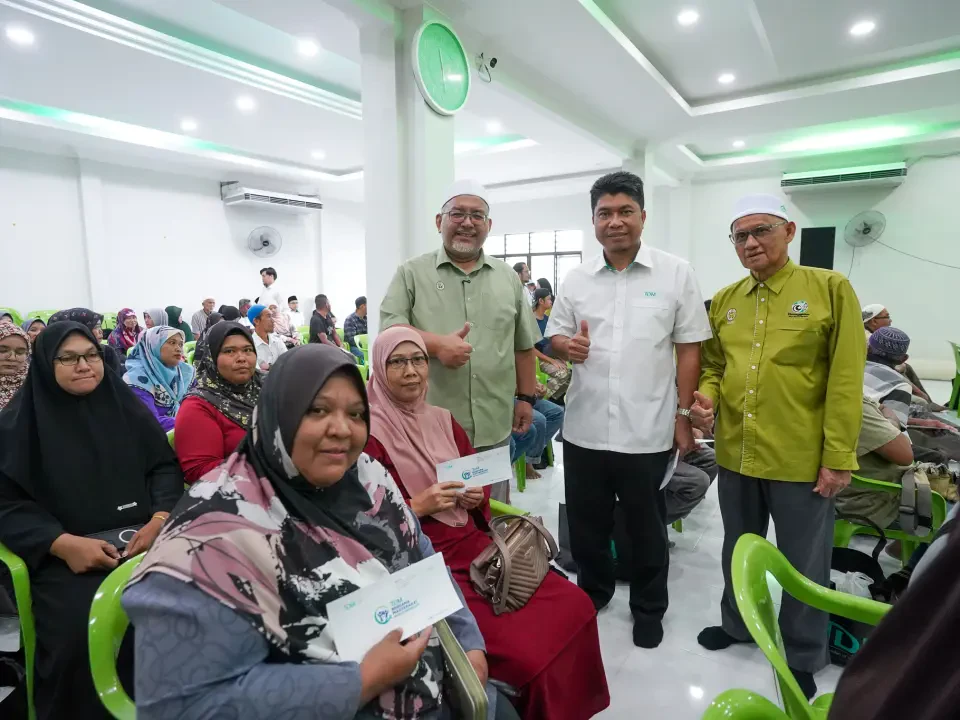
Author: Nurul Atiqah Roshali from TrenglishxCommunity, Yayasan Terengganu
Let me get this straight: English is a looney language. Try pronouncing these without confusing yourselves: ‘discount’ and ‘viscount’. Only with a slight change of the initial letter, and suddenly the ‘s’ is silent. You get what I mean.
Back in my school days, writing was a breeze. However, when it comes to speaking English, I too stammered like the jammed printer in my office; not only did it sound bad, the words were indecipherable too.
A while ago, a certain local celebrity made a quite heated Twitter post that triggered Terengganuans. It implied that action is needed on the state’s education system to improve English learning and performance. However, the fact that Terengganu always topped all states in National Public Exams refuted the implied statement.
Acing interviews, conferences, and academic presentations in English during studies have been a challenge to some Terengganuans. We read a plethora of new words and memorized them but the real culprit is our strong dialect.
Trying to master the English pronunciation overnight would be a hefty task to any second language learner. Therefore, let’s break it down into little parts so we will be aware of the do’s and don’ts as a Terengganuan when speaking English :
1.The infamous Terengganuan nasal ‘NG’ [ŋ].
Yes, this is the ultimate giveaway to us Terengganuans and our signature phoneme. Yes, we Terengganuans are proud of it; however, it could hinder good English pronunciation.
The [ŋ] sound usually comes up at the end of words in the Terengganuan dialect i.e: makang (makan) - ‘eat’, badang (badan) - ‘body’, pinggang (pinggan) - ‘plate’.
We have to be extra careful in pronouncing English words with the letter ‘N’ at the end of it such as broken, collagen, champion, cinnamon, etc.
Of course, if the English words have the suffix -ing, do what you do best, Terengganuan tongues!
Knowing this phoneme could help us be more careful in English pronunciation whenever we have the ticks to do so.
2. Stresses aren’t all bad, ‘ya know.
In the Terengganuan dialect, each syllable receives equal importance (there is stress, but each syllable has its length), and different stresses in a word on a certain syllable convey different meanings. Surprisingly, this characteristic also exists in English. Curious? Read on.
Our dialect generally uses syllabic stresses, one of the functions is to differentiate meanings. We can hear them in: nyapu (penyapu) - ‘broom’ or nnyapuh (menyapu) - ‘sweeping’ , kije (kerja) - ‘work’ and kkije (bekerja) - ‘working’ and etc. What does this have to do with English you might ask?
We can apply syllabic stress in learning English pronunciation too. There are some English words that also use syllabic stresses for different meanings.
For example, the word ‘suspect’. When the first syllable is stressed, ‘SUS-pect’ means someone who might have committed a crime. Meanwhile, when the second syllable is stressed, ‘sus-PECT’ means to have a feeling or thoughts on something.
Now that we know about this property, soon we should be able to listen and pronounce more cautiously when speaking English. Thanks to Terengganuan dialect syllabic stress, we can now start improving on English pronunciation!
3. Mind your substitutions.
If you are not a Terengganuan and thinking just adding the [ŋ] sound at the end of every word makes the whole Terengganuan dialect, please hold back.
Terengganuans also tend to substitute [p] with [k], i.e: cakak (cakap) - ‘speak’, kejak (kejap) - ‘a while’, cukuk (cukup) - ‘enough’. Also substituting [r] with [x] or as linguists termed the voiceless uvular fricative sound, which sounds like /kh/.
Just like that baby penguin meme trying to pronounce the Arabic ﺥ, Terengganuan words sound like these: khepok (keropok) - ‘fish cakes/crackers’, khete (kereta) - ‘car’, khande (keranda) - ‘coffin’.
However, because of the substitution's influence in the Terengganuan dialect, it meddles with the English [r] pronunciation. Imagine pronouncing ‘crack’ in Terengganuan dialect’s sound [x] , /kh-rek/.
I know you are not the only one cracking up in laughter now. Even the /r/ sound in English is also not a true [r]. Hold up! What? Then, how would a pure-blood Terengganuan ever succeed to pronounce the English [r]? Keep reading.
Since the English [r] is not as rhotic as the Spanish word rabiaré, most of the English [r] sounds are silent or have pseudo-vowel sounds. In British English, ‘remember’ is pronounced as /re-mem-buh/.
Ta-dah! The /r/ disappeared. Getting to the point, Terengganuans can pronounce the English [r] just like our casual standard Malay [r], i.e: Rabu - ‘Wednesday’ and by all means, please drop the /kh/ sound.
By acknowledging these substitutions in the dialect, Terengganuans should be more aware of our tongue placements in English pronunciation.
4. Do you even listen to yourselves?
In learning another language, we have to listen to ourselves. One of the methods is to record our speech and from there we improve our pronunciations so that we don’t offend native speakers when we communicate with them. On another note, I think I offended Mr Whiskers when I meowed back at him because he hissed at me.
Keep in mind that there is no perfect pronunciation but we do have RP (Received Pronunciation). Let’s not start another long rant on that. Anyhoo, we all have accents.
Born Terengganuan built our tongue with the language properties mentioned above, but that doesn’t mean we can never improve. Sure we can. Even English native speakers have their own English accents.
We only need to work a bit harder to sound as close to their native sounds as possible and to make it decipherable. Again, we are not like my jammed office printer.
As mentioned previously, mastering the whole pronunciation needs a hefty amount of work for us as second language speakers. Try pronouncing syllables one by one at once and slow down until we get it right, and repeat. Trust the process and soon we could see improvements.
Here’s a pronunciation poem by Dr. Gerard Nolst Trenité to get our gear grinding for practice, have fun!
“Now I surely will not plague you
With such words as vague and ague,
But be careful how you speak,
Say break, steak, but bleak and streak.
Previous, precious, fuchsia, via;
Pipe, snipe, recipe and choir,
Cloven, oven; how and low;
Script, receipt; shoe, poem, toe.”
5. Do Follow Us at TrenglishxCommunity Online
Did you know that you can also learn English online with TrenglishxCommunity (TxC)? While the concept of online learning is nothing new and there are tons out there to choose from, TxC is special because it is a program by Terengganuans for Terengganuans.
TxC has social media pages that you can visit to get daily English learning tips and fun language content including pronunciation content. These will come in handy as you practice your English. TxC is on Facebook, Instagram, and also YouTube.
You can follow these pages so that you will receive updates. Stay tuned because TxC also offers online classes from time to time.
Every practice is a learning process, and mistakes are opportunities to learn. All these tips above would help you become the English speaker you want to be. We are from Terengganu and we can speak English well!







